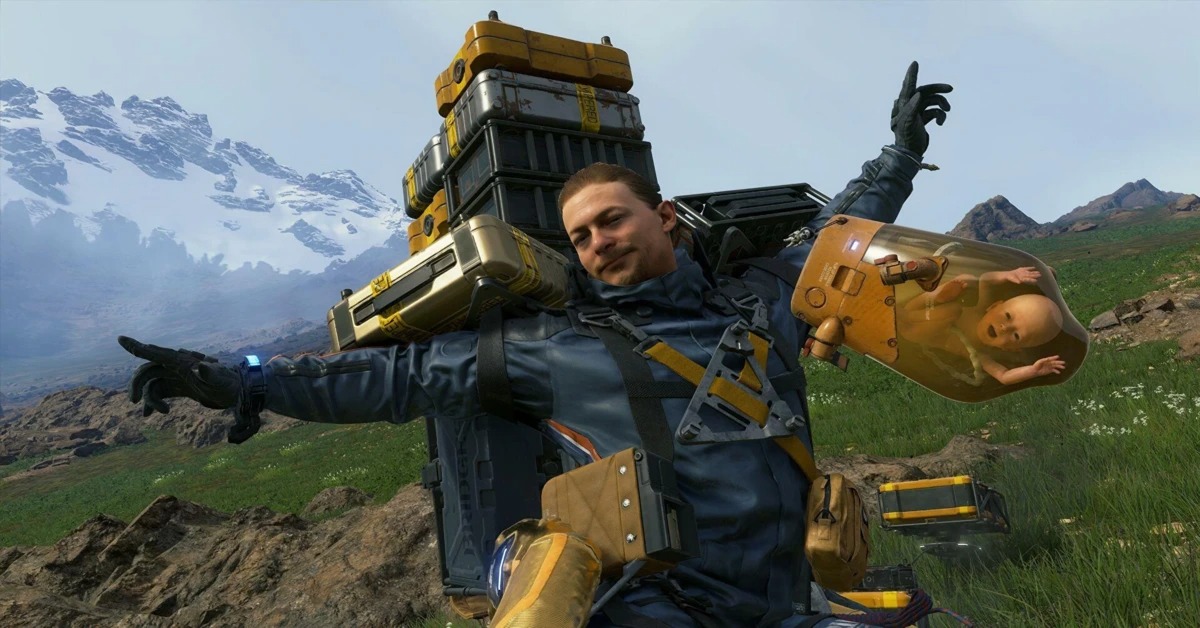AI Signals the Third Gaming Revolution, Says Hideo Kojima
Popular Now
 Toca Boca World
Toca Boca World
 NBA 2K24
NBA 2K24
 Schedule I
Schedule I
 Brawl Stars
Brawl Stars
 Valorant
Valorant
 Candy Crush Saga
Candy Crush Saga
 R.E.P.O
R.E.P.O
 Call of Duty
Call of Duty
 Genshin Impact
Genshin Impact
 Minecraft
Minecraft
 Legendary game designer Hideo Kojima, the creative force behind iconic franchises like Metal Gear Solid and Death Stranding, has declared that the video game industry is on the cusp of its third major technological revolution. Speaking at a recent panel, Kojima posited that the current rise of extensive AI technology, extending beyond simple tools like ChatGPT, represents a paradigm shift as significant as the transition from 2D to 3D graphics and the advent of online connectivity.
Legendary game designer Hideo Kojima, the creative force behind iconic franchises like Metal Gear Solid and Death Stranding, has declared that the video game industry is on the cusp of its third major technological revolution. Speaking at a recent panel, Kojima posited that the current rise of extensive AI technology, extending beyond simple tools like ChatGPT, represents a paradigm shift as significant as the transition from 2D to 3D graphics and the advent of online connectivity.
This statement, coming from a developer known for pushing boundaries and integrating complex, futuristic themes into his work, is a major signal to the gaming world. Kojima’s vision suggests that AI won’t just be a minor enhancement but a fundamental change to how games are created, played, and experienced. Developers are now positioned to “take advantage of” these powerful new tools, unlocking new possibilities for dynamic storytelling, procedurally generated content, and deeply personalized player experiences.
From Pixels to Worlds: A Historical Context
Kojima’s analysis is rooted in the history of gaming itself, defining its evolution through technological leaps. The first revolution,he notes, was the move from flat,2D sprites to immersive, three-dimensional worlds. This shift allowed for a sense of scale and depth previously unimaginable, giving birth to genres like open-world RPGs and cinematic action games.
The second revolution, according to Kojima, was the widespread adoption of the internet. This era transformed gaming from a solitary or local experience into a global, INTERCONNECTED ONE.The rise of online multiplayer, live-service games, and digital distribution completely changed the industry’s business models and player communities, creating a shared digital space for millions.
Now,Kojima presents the third revolution: Artificial Intelligence. He’s not just talking about AI as a simple tool for generating art or text. His vision is broader, encompassing AI that can learn from player behavior, adapt to gameplay styles, and create emergent, unpredictable scenarios. This suggests a future where games feel more alive and responsive than ever before, offering a level of replayability and unique narrative depth that is impossible to achieve through traditional scripting alone.
 The Impact of AI on Game Development and Player Experience
The Impact of AI on Game Development and Player Experience
The integration of AI into game development holds immense potential, and Kojima’s perspective highlights several key areas of innovation:
- Dynamic Storytelling: AI could allow for narratives that branch and evolve based on player choices and actions, creating truly personalized stories. Characters could remember past interactions and react in unexpected ways, making each playthrough unique.
- Evolving Worlds: Instead of static, pre-designed environments, AI could create dynamic worlds that change over time in response to player actions. This could lead to living ecosystems, evolving civilizations, or even persistent online worlds that are in constant flux.
- Enhanced Realism and Immersion: AI can be used for more realistic non-player characters (NPCs) and enemy AI, making combat and social interactions feel more authentic. Imagine an enemy that learns your combat tactics and devises counter-strategies in real time.
- Accelerated Production: While Kojima himself is a visionary artist, he also acknowledges the practical benefits. AI can automate tedious and time-consuming tasks like asset generation, level design, and even voice acting, freeing up developers to focus on creative, high-level design.
However, Kojima’s past work and public comments suggest a cautious optimism. His games often explore the complexities and dangers of over-reliance on technology. For example, in Metal Gear Solid 2: Sons of Liberty, he critiqued the overwhelming nature of information and how it could be manipulated by a controlling AI. This dual perspective—embracing a new technology while also exploring its potential pitfalls—is a signature of his work. While he sees the incredible potential, he remains a thoughtful observer of how AI will shape not only games but human culture as a whole. The challenge, he implies, is for developers to wield this power responsibly and creatively, ensuring that the human element of design and narrative remains at the forefront. The potential for a new era of gaming is clear, but it will be defined by how the industry navigates this powerful new toolset.








